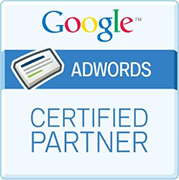Search Engine Optimization (SEO) is a highly effective Digital Marketing tool for any Small Business Owner wanting to drive traffic towards their Website. But, unfortunately, this doesn’t necessarily mean that every SEO Campaign goes according to plan.
Many people are too negligent when it comes to selecting their keywords, while others simply miss the mark or just give up altogether. This could be partially due to the overwhelming amount of information about SEO that’s available Online, which makes it difficult to distinguish between what’s relevant and what’s not for Small Businesses.
There are of course, an enormous amount of SEO success stories. However, many people are lead to believe that once they establish an effective Campaign they can simply stop there: they think that what worked yesterday will be just as effective next month. When managing your SEO efforts, Small Business Owners should not only be aware of what tactics work, but how they are constantly changing and adapting over time.
While it’s simple enough to choose words for your SEO Campaign, mastering the art can take months, even years before you see the great results that are possible. But with some slight adjustments and some thorough research of the current market, you have a high chance of obtaining that first page ranking. In many cases, all you have to do is correct a few simple errors to get the desired results.
For that reason, we’ve put together a list of some of the most common SEO mistakes that could be damaging your Website, as well as advice on how to fix them.

Irrelevant Website Content
It goes without saying that your Website’s content should be relevant to your Small Business, your customers and your industry. This will not only make your Website a helpful resource for your potential customers, but will also aid in your SEO results.
For example, if you're a dog trainer, then it makes no sense to talk about cars on your site. In Google's eyes, a dog trainer’s Website that has content about cars will not provide its searchers with the kind of content they’re looking for.
The goal is to have your Website seen as a useful source of information for a particular topic. Google is all about improving the user experience and the more your Website publishes content that your customers can relate to, the more likely Google is to reward you with a high-ranking search results spot.
Always keep your customer in mind when writing content for your Website because chances are, Google is going to notice that too. Don’t let irrelevant information damage your search engine ranking.

Over Optimizing
‘Over optimizing’ involves repeating the same key search terms throughout a Website’s content more often than is necessary. This not only serves to create monotonous and annoying content, but also negatively effects your SEO rankings.
This underhanded SEO tactic was prevalent in the early 2000s, which is why some people are still under the illusion that it holds true today. Thankfully, Google picked up on this little trick, and now penalises Websites that stuff keywords into their content. This is because Google strives to offer good, useful and engaging content for its users.
Every Small Business Owner should keep this in mind when writing new Website content. If you feel like you’ll be helping your ranking by stuffing in as many keywords as possible, you’re actually probably doing more harm than good. To make sure your content truly is quality, read back through each page and ask yourself the following questions:
- Does my content make sense?
- Does it sound repetitive?
- Are there any/enough keywords within the content?
- Would my target market search these terms?

Not Using Analytics Tools
Having tangible data, like that which Google Analytics provides, will help you to understand which keywords are working most effectively and which could be changed. Make use of the technology available so that it optimizes your SEO and reduces the negative impact on your Website’s Search Engine ranking.
It’s understandable to get caught up in the excitement of discovering successful words and phrases, however you need to understand why these are working. This way you’ll be able to replicate your success again, and again and again! Even more importantly, it’s vital to be able to quickly ascertain what isn’t working well, so you can nip it in the bud! Analytics are the best way to gather the data you need to tell you this kind of information.
So, instead of playing the guessing game, try keeping a track of all the data. Tools such as Google Analytics can help you set up conversion tracking for your keyword phrases, while comparing the data against each other to see what produces the best results.

Ad Overload
Excessive ads can be a turn-off for users as well as Search Engines, similar to the anger you experience when your favourite TV show has too many commercial breaks in between.
Putting more ads on your Website to make more money seems like a good idea - it certainly makes sense if you’re a Small Business looking to improve your bottom line! However, the ad overload, just like over-optimizing, is misguided and is no longer a sustainable SEO strategy.
Google is now placing a greater emphasis on improving the user experience. This doesn’t mean that Google is necessarily discouraging advertising, but rather it wants you to integrate ads into your Website without detracting from this overall user experience.
According to the recent changes made to Google AdSense Rules, it now may lower a Website’s ranking if it finds its pages have too many advertisements, compared to its content. So, what you should take away from this? While it’s ok to have a couple of ads, make sure the Content is King on your Website and that your visitors won’t be overwhelmed by an onslaught of advertisement.
Improves Conversion Rates
A Small Business that consistently updates its Blogs shows visitors that its cares deeply about its market and educating its customers. A Blog with high-quality content also helps build brand loyalty, further increasing your conversion rates.
According to statistics, overall return on investment is more likely to increase for Small Businesses that blog. The logic here is the more you’re Blogging, the more visitors will be engaged and that means a higher SEO ranking.

Not Having Unique Title Tags and Meta Descriptions
Having your Small Business name as the only title on every page of your Website can also damage your ranking. Google now recommends that every Webpage should have a unique title. This is not just for SEO purposes, as each page title can also be shared on Social Media, or used as the text when a Web user bookmarks your Sites. Therefore, it pays to have descriptive and unique titles.
Let’s look at a Business that manufactures tennis balls as an example. That Business could have ‘Tennis Ball Manufacturer’ as its main homepage keywords, so its homepage title would be something to the effect of “VIC Tennis Store – Tennis Ball Manufacturer.” Then other pages in their portfolio could focus on more specific services that are also popular search queries for that industry, for example ‘Multi-Coloured Tennis Balls’; ‘Ball Customisation’; and ‘Tennis Ball Design’
Make each Meta Description as unique and persuasive as possible. Your Homepage, along with the ensuing pages, should include a custom Meta Description that will make people want to click on your listing in search results, as well as include relevant keywords.
With Google constantly updating its algorithm based on what its users value, it’s important for your Small Business to take note of all the above. Understanding how the right information can transform your Website into one that attracts visitors is the key to a sound SEO marketing strategy. More importantly, it will prevent your Website from ranking poorly.
SEO itself is both and dart and a science, so creating and maintain an effective Campaign can be challenging for a Small Business Owner. If you’re wanting to implement SEO on your Website, but aren’t sure how to get started, give us a call today. Our team of dedicated SEO professionals are able to create a personalised SEO Campaign that’s completely targeted towards your business’s audience and goals.








